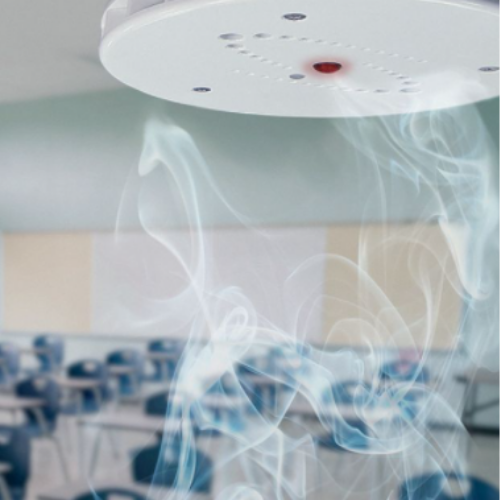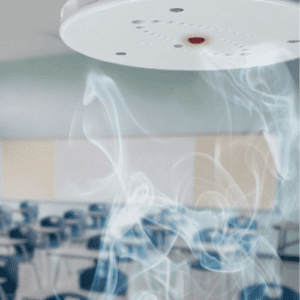Vaping within schools has become a concern across the country with the added risks of THC and spice-laced vapes regularly raised. Research by the public health charity, ASH, shows that there has been a large rise in vaping since the COVID pandemic. Its latest figures indicated that in February/March 2024 the proportion of 11–17-year-olds experimenting with vaping had reached 7.6% in 2024, compared with 4.4% in 2019.
Schools are at the forefront of combating youth vaping. They are dealing with students that are using school toilets to vape in and frequently trying to skip lessons to do this. Additionally, schools can face pupils arriving at school having vaped and this has led to hospitalisations.
Silverdale School provides education to 11–16-year-olds and sixth formers in Sheffield and is featured in our latest case study. The school faced the same challenges we have seen at other high schools with staff concerned about the level of vaping among its students and the impact it was having on their health, as well as their attitude to learning.
Due to this the school introduced a new behaviour policy so pupils understood that vaping, and the associated disruption of lessons, were no longer going to be tolerated. Additionally, the school’s Assistant Head was tasked with investigating vape detectors. After extensive online research they drew up a shortlist of suppliers, which included Ecl-ips.
The companies were contacted and subsequently Ecl-ips was selected to supply 10 HALO Smart Sensors. Blake Foster, Business Support Services Manager at Silverdale, said the school decided to purchase HALO Smart Sensors, rather than other vape detectors because the devices are easy to install and update so the system was future-proofed.
The school has enclosed toilet cubicles with an extraction fan and floor to ceiling doors. Due to the ‘Vape Detection’ range of the HALO Smart Sensor being 6ft radius of the device we would not normally advise the device to be placed outside of that perimeter and certainly not outside of cubicles that have floor to ceiling toilet doors. However, Silverdale, were happy to try the sensors being installed outside of the cubicles to help with the budget, and are very pleased that it has led to vape being detected successfully.
Blake suggested for schools that need to manage their budgets you could buy the vape detectors needed in stages. He said: “Even if you are not able to purchase devices for all student toilets at once, consider installing them in key areas at first and then building up to a full rollout overtime.”
The HALO Smart Sensor can also detect tetrahydrocannabinol (THC), which is found in cannabis, either within vapes or being smoked. Blake commented that the device had detected THC at school and this had ultimately led to the exclusion of one of their pupils. THC vapes, as well as the potentially-lethal vapes laced with spice, are illegal in the UK.
If you want to know more about how we can support schools, and other venues impacted by vaping, by supplying the HALO Smart Sensor please get in touch.



